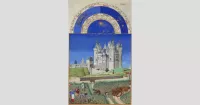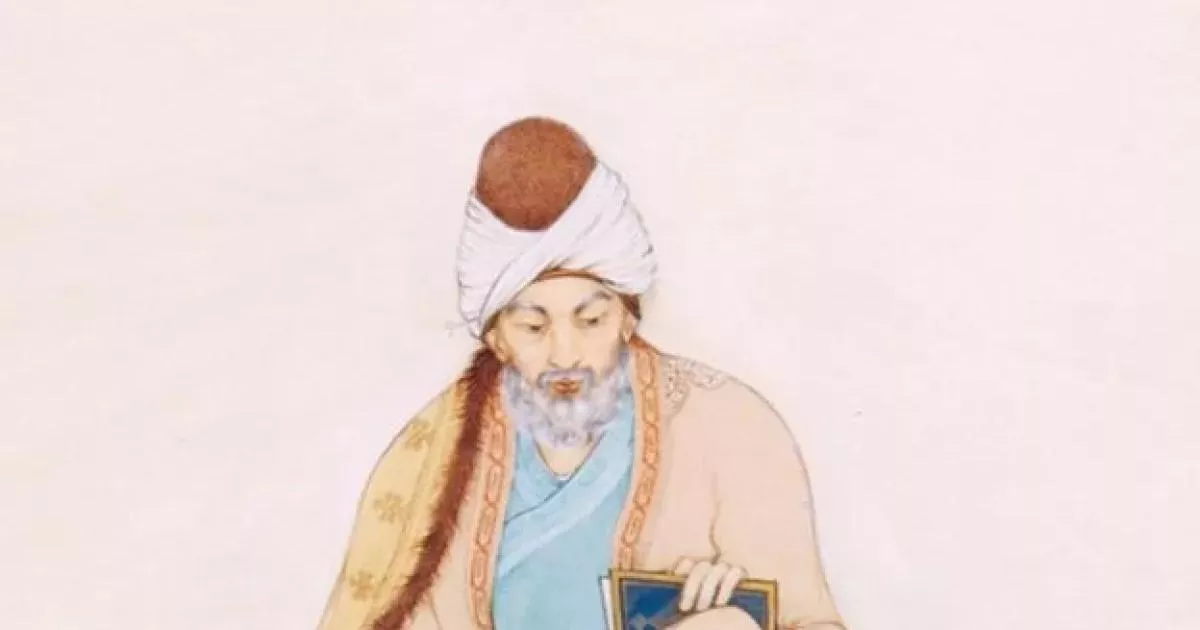A detailed timeline of the impact and legacy of Rumi across different fields.
Jalāl al-Dīn Muḥammad Rūmī, known as Rumi, was a 13th-century Persian poet, jurist, Islamic scholar, theologian, and Sufi mystic. Born during the Khwarazmian Empire, his teachings emphasize love, compassion, and the unity of all beings with God. Rumi's poetry, particularly his Masnavi, explores themes of spiritual growth, self-discovery, and the transcendence of the ego through devotion and ecstatic experiences. He founded the Mevlevi Order, known for its whirling dervishes, who practice a form of active meditation. Rumi's work continues to inspire people across cultures and religions.
1927: Mausoleum of Mevlâna reopened as a Museum
In 1927, the Mausoleum of Mevlâna in Konya was allowed to reopen as a Museum two years after the Sufi orders were dissolved.
1974: Whirling Dervishes permitted to travel to the West
In 1974, the Whirling Dervishes received permission for the first time to travel to the West, marking a significant moment for sharing their tradition globally.
1976: Publication of The Sayings of Rumi and Iqbal
In 1976, "The Sayings of Rumi and Iqbal" by Khawaja Abdul Hamid Irfani, Bazm-e-Rumi was published.
1981: Rumi and his mausoleum depicted on banknotes
In 1981, Rumi and his mausoleum were featured on the reverse side of the 5000 Turkish lira banknotes.
1994: Banknote depiction concluded
In 1994, the depiction of Rumi and his mausoleum on the 5000 Turkish lira banknotes came to an end.
2000: Rumi: Past and Present, East and West Published
In 2000, the book "Rumi : Past and Present, East and West: The Life, Teachings, and Poetry of Jalâl al-Din Rumi" by Lewis was published, detailing the life, teachings, and poetry of Rumi.
2001: Documentary Rumi in the Land of Khusrau
In 2001, Indian filmmaker Muzaffar Ali from Lucknow created a documentary titled "Rumi in the Land of Khusrau," which showcases concerts inspired by the works of Rumi and Amir Khusrau, highlighting the parallels in their lives.
2005: Mevlevi Sama Ceremony proclaimed by UNESCO
In 2005, UNESCO recognized "The Mevlevi Sama Ceremony" of Turkey as one of the Masterpieces of the Oral and Intangible Heritage of Humanity, acknowledging its cultural significance.
September 2007: UNESCO celebrates Rumi's eight hundredth anniversary
In September 2007, UNESCO celebrated the eight hundredth anniversary of Rumi's birth, issuing a medal in his name to encourage research and the dissemination of his ideas, aligning with UNESCO's ideals.
September 2007: Iranian school bells rung in honor of Rumi
On 30 September 2007, Iranian school bells were rung throughout the country to honor Mewlana.
September 2007: Turkey Celebrated Rumi's eight-hundredth birthday
On 30 September 2007, Turkey celebrated Rumi's eight-hundredth birthday with a large Whirling Dervish ritual performance of the samāʿ, which was televised and broadcast live in eight countries.
2010: First volume of Mawlana Rumi Review published
In 2010, the first volume of the Mawlana Rumi Review was published by The Centre for Persian and Iranian Studies at the University of Exeter in collaboration with The Rumi Institute in Nicosia, Cyprus, and Archetype Books in Cambridge.
Mentioned in this timeline

Books are a means of storing information as text or...
Turkey officially the Republic of T rkiye is a transcontinental...

Travel involves the movement of people between geographical locations using...

September is the ninth month of the year in the...
Cyprus is an island country in the eastern Mediterranean Sea...
Trending

40 minutes ago US, Israel launch military operation against Iran, airstrikes kill leader, Gulf earthquake follows.

40 minutes ago Kaitlan Collins covers Bill Clinton's Epstein testimony and calls out Trump allies.

40 minutes ago Adam Levine and Behati Prinsloo: Navigating Cheating Allegations and Maintaining Relationship

41 minutes ago Brandi Carlile Honored as Time's 2026 Woman of the Year, Other News Emerge
Gabe Perreault is a Canadian-born American professional ice hockey player currently playing for the New York Rangers in the NHL...

41 minutes ago Steve Witkoff involved in tense Geneva meeting before US-Iran conflict escalation.
Popular

Jesse Jackson is an American civil rights activist politician and...

Hillary Diane Rodham Clinton is a prominent American politician lawyer...

Jim Carrey is a Canadian-American actor and comedian celebrated for...

XXXTentacion born Jahseh Dwayne Ricardo Onfroy was a controversial yet...

Kashyap Pramod Patel is an American lawyer who became the...

Michael Joseph Jackson the King of Pop was a highly...
